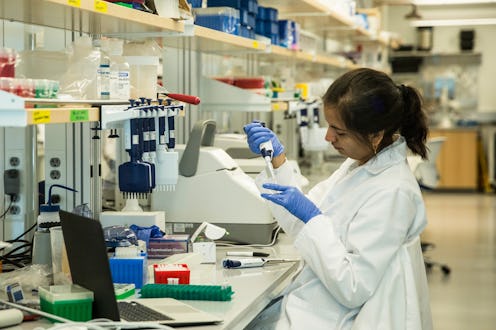News
Ready To Say Goodbye To Pap Smears?
Pap smears have never been — and never will be — a walk in the park. The cold stirrups, the speculum, and the general awkwardness at gynecologist visits: you name it, it's an awful. But the days of Pap smears might soon be over: On Wednesday, a FDA advisory panel voted to begin recommending that HPV tests replace pap smears.
So, what is the difference between an HPV test and a Pap smear? Well, a Pap smear shows abnormal changes on the cervix, but doesn't indicate whether the individual has HPV or not. Normally, women get Pap smears alone, and if the Pap smear is flagged as abnormal, the gynecologist will refer the patient for further tests.
Then, a woman may get a colposcopy, a microscopic examination of the cervix, and possibly a biopsy which removes small bits of tissue from the cervix). The biopsy is then used to evaluate abnormalities in the cells, including the presence of precancerous cells. So, with Pap smears, HPV testing is only a follow-up test. Sound like a long-winded process? It totally is.
The new test that the FDA is recommending, on the other hand, is a DNA test (also called the Roche test) that directly screens for HPV. It has the ability to detect many high-risk strains of HPV, including HPV 16 and 18, which cause most cases of cervical cancer. The FDA panel further recommended that women who tested positive for HPV 16 and 18 would then get a colposcopy.
Women with any other high-risk strains would get a Pap smear to see if a colposcopy was necessary. This means HPV testing would no longer be the follow-up test — it'd be the primary test.
Here's what the FDA panel said in its recommendation:
The data show that the proposed primary screening indication for the cobas HPV test detects more women with disease and requires fewer women without disease to go to colposcopy than cytology alone.
FDA panel member Dr. Kimberly Hanson said to Fox News of the recommendation:
Now we have the opportunity to identify women earlier, and to me that's compelling. Although colposcopy is invasive and can be anxiety-provoking, it's really very safe, so I think I'm leaning toward earlier screening.
And the FDA will most likely comply with this recommendation; the FDA typically aligns itself with panel recommendations.
